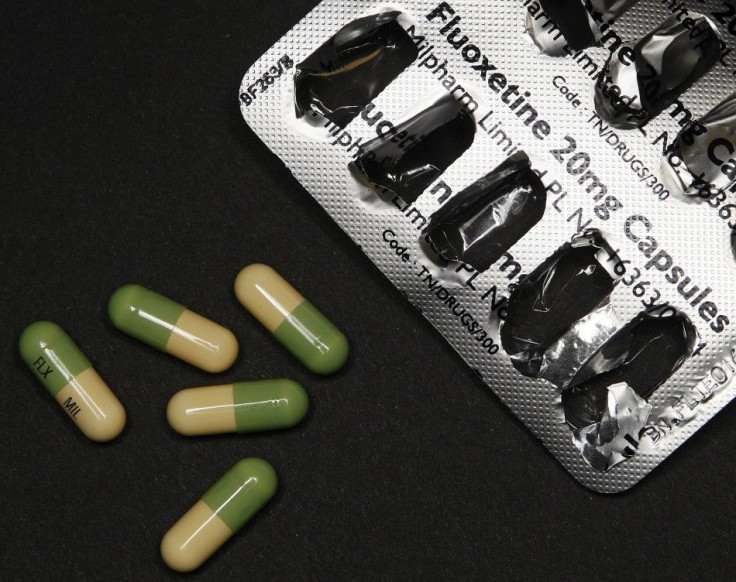COVID Patients On These 'Widely Available' Antidepressants Less Likely To Die: Study
KEY POINTS
- The study highlights the possible benefits of SSRI antidepressants on COVID-19 patients
- Patients taking any type of SSRIs were 8% less likely to die of COVID-19: Researchers
- The statistical analysis shows "significant association"
COVID patients who take a class of antidepressants called SSRIs (selective serotonin reuptake inhibitors) are less likely to die, a new study has found.
For their new study, published Monday, researchers from Stanford University and the University of California, San Francisco (UCSF) looked at the effects of SSRIs on COVID patients.
SSRIs are among the most prescribed and "widely available" antidepressants for psychological conditions. They also have anti-inflammatory properties, the researchers noted.
"As the world searches for effective treatments for COVID-19, evidence from recent studies has suggested that selective serotonin reuptake inhibitor (SSRI) antidepressants may be of benefit," the researchers wrote, noting that severe COVID-19 has been seen to be "primarily triggered" by a proinflammatory response.
The researchers analyzed records from 87 health care centers in the U.S., UCSF noted in a news release. They used the Cerner Real World COVID-19 de-identified database, which contained records of 500,000 patients in the country. Of the 83,584 adult patients who were diagnosed with COVID-19 from January to September of 2020, 3,401 were prescribed with SSRIs.
When the researchers compared the SSRI-treated participants with "matched control patients" who were not taking antidepressants, they found that those who took any type of SSRIs were 8% less likely to die. The study showed that those who used a type of SSRI, known as fluvoxamine, were 26% less likely to die, while the mortality risk of those who took another SSRI, fluoxetine, fell by 28%.
"These findings suggest that SSRIs, if proven effective, could be a therapeutic option to reduce mortality among patients with COVID-19," the researchers wrote.
@UCSF & @Stanford study links SSRIs, the most widely prescribed antidepressants, to survival for patients with #COVID-19. @UCSF_BCHSI @SirotaLab https://t.co/4LuNNt65hj
— UC San Francisco (@UCSF) November 15, 2021
"We can't tell if the drugs are causing these effects, but the statistical analysis is showing significant association," study co-author Marina Sirota, said in the UCSF news release. "There's power in the numbers."
Calling the results "encouraging," study co-author Tomiko Oskotsky noted the importance of looking for "as many options as possible" to treat conditions. This is because some drugs will work for some people but not others. There may also be cases when patients don't tolerate certain drugs well.
"Data from electronic medical records allow us to quickly look into existing drugs that could be repurposed for treating COVID-19 or other conditions," Oskotsky said in the news release.
"Further research and randomized clinical trials are needed to elucidate the effect of SSRIs generally, or more specifically of fluoxetine and fluvoxamine, on the severity of COVID-19 outcomes," the researchers wrote.
The study once again lay stress on SSRIs' potential benefits against COVID-19. Another study in October found that high-risk adults who were given fluvoxamine had a lower need to be hospitalized compared to those who received a placebo.

© Copyright IBTimes 2024. All rights reserved.












